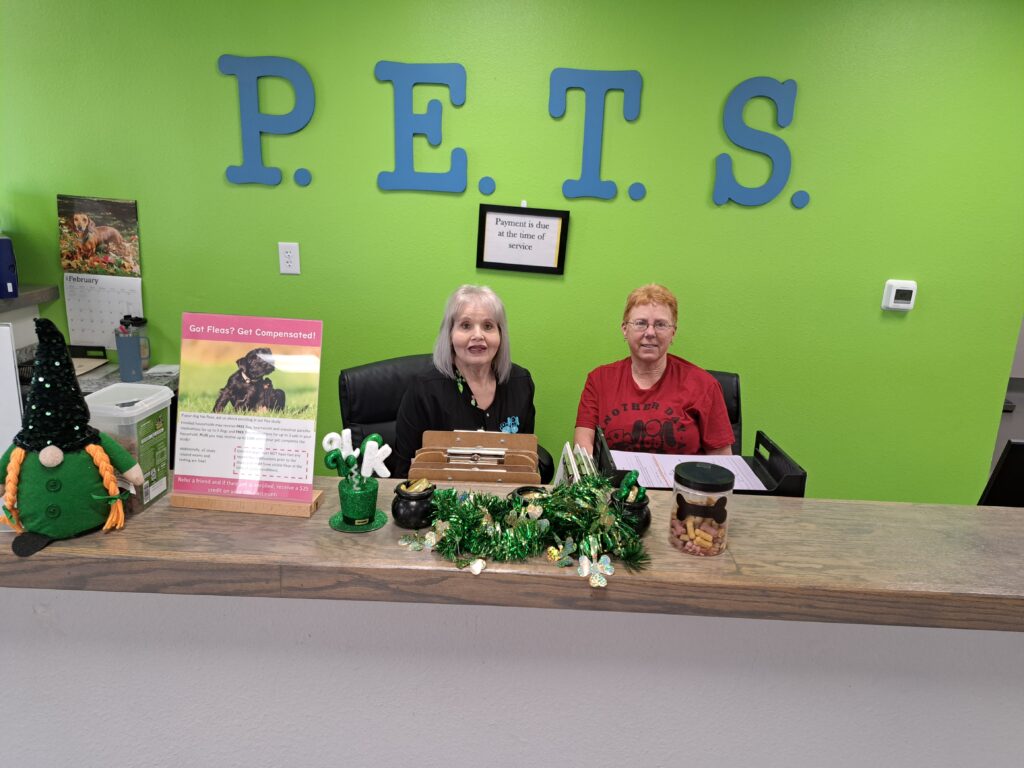What is a Nonprofit?
“A nonprofit organization is an entity that is created and operated for charitable or socially beneficial purposes rather than to make a profit.”
(Nonprofit Organization (NPO): Definition and Example (investopedia.com))
PETS Clinic is a 501(c) (3) established in Wichita Falls, Texas in 2007.
Are Nonprofit Services Free?
Many people translate non-profit quite literally as an organization that doesn’t make a profit. In a way this is correct as profits go towards further accomplishing the nonprofit’s mission in a wide variety of ways. Some may also believe nonprofits do not charge for what they offer, but nonprofit does not mean free.
At PETS Clinic, we keep costs for clients as low as possible. For pet parents facing hardship, we offer services with an agreement that we will help the client fundraise for sick or injured care for their pets on Facebook. When grant funds or donor funds are available, we may be able to help cover a portion of the cost.
You can review our payment options here: Ways to Pay | P.E.T.S. Clinic (petsclinic.org)
Are Nonprofits Funded by the Government?
Most non-profits do not receive any government or federal funding. Nonprofits belong to the communities they serve.
PETS Clinic does not receive federal funding.

How are Nonprofits Funded?
It is important to understand that there are around 2 million nonprofit organizations in the US. That means there are 2 million different business models. Most nonprofits have some way of generating revenue: most commonly, thrift stores (Good Will/Salvation Army), fees for services (Hospitals/daycares), labor (Work Services Corp, private schools).
At PETS Clinic, our fees for services business model covers about 85% of our operating costs. Grant funding and donations make up the difference. We need all sources of revenue to survive, and communities need nonprofits. We plug holes left by for-profits and we make the communities we serve better so whether you give for a specific cause or just to help the org, please know your gift matters. We are better together!
Services
Grants
Along with fees for services, nonprofit leaders are applying for grants year-round. Many grants are cyclical, so they are only available every other year, every third year, etc.
“A nonprofit grant, sometimes referred to as a fundraising grant, is a financial donation given to an organization. Rather than giving a lump sum donation that the nonprofit can use to support general operations, grant organizations may stipulate that they want the funds to be used to support a specific program or initiative.”
What is a Nonprofit Grant? – Nonprofit Glossary (kindful.com)
Grant funding is 99% restricted meaning the foundation has given it for a specific purpose. This purpose is commonly outlined in the application for support. Organizations are required to provide reports and receipts for expenditures related to grant funding.
At PETS Clinic, grants are important in providing low-cost services like discounted spays and neuters, free spays and neuters for feral cats, and various past and present programs such as PETS Pantry.
Donations
There is no doubt about it, giving to nonprofits feels good, and it is vital to building and strengthening our community. For PETS Clinic, donations equate to ensuring clients facing financial barriers to care can give their pets the care they need, but there are many aspects to providing care that are not just covering client costs. Along with every service we provide, there are costs to doing business we will cover later in this blog. Suffice to say, without donations, there would be no PETS Clinic.
Nonprofit as a Business
“The term “nonprofit” is a bit of a misnomer. Nonprofits can make a profit (and should try to have some level of positive revenue to build a reserve fund to ensure sustainability.) The key difference between nonprofits and for-profits is that a nonprofit organization cannot distribute its profits to any private individual (although nonprofits may pay reasonable compensation to those providing services). This prohibition against “private benefit” is because tax-exempt charitable nonprofits are formed to benefit the public, not private interests.”
“Nonprofits are Nothing Like a Normal Business.”
Think about all the cost associated with running a business. Regardless of the industry, there are obvious costs and thousands of behind-the-scenes costs. A restaurant, for example, must purchase food and pay its cooks and waitstaff but you probably don’t think about the cost of the walk-in fridges and freezers, the insurance, rent, utilities, upkeep, cleaning supplies, permits, advertising, etc.
Nonprofits are still businesses and contrary to popular belief, most do not have government funding of any kind. PETS clinic certainly does not. Unrestricted funding pays for the “unsexy” costs of doing business. We get it! No one wants to pay for boring surgical gloves or laundry detergent. We don’t either, lol, but operational costs are unavoidable and frankly, directly tied to the work we do. We can’t operate without surgical lighting, and we can’t turn on the lighting without electricity and we can’t have electricity without a building, and we can’t have a building without insurance. You get the picture!
How is a nonprofit different from a regular business then? There is very little difference. We have the same expenses, challenges, rules, and regulations. I would argue, we have a few more. Non-profits are given two tax breaks. We do not pay property tax on one property only. Any property beyond one is subject to tax. We do not pay income tax on the “profit” we earn. It is understood and required that profits earned be used to serve the community in the ways outlined in our articles of incorporation. Nonprofits are still responsible for all other taxes, regulations, and rules.
“A Well-Run Nonprofit Should Have Low ‘Overhead’ Costs”
Operating costs, such as paying utility bills, rent, salaries, and investing in office equipment are referred to by a variety of names, including “overhead,” “administrative costs,” and “indirect costs.” While the terminology varies, one thing does not: these costs are essential to delivering on a nonprofit’s mission and have no relation to the level of effectiveness or the outcomes a charitable nonprofit may deliver.
“Nonprofits Do Not Pay Staff, They Use Volunteers”
Nonprofits make up over 10% of private sector employment and provide jobs to over 12 million people in the US. Unlike private for-profits, we are required to have a board of directors, publish our 990, in some cases be audited annually, and all business is restricted to our mission.
For PETS Clinic and the veterinary industry, we cannot work without veterinarians. A veterinarian has an advanced education that cost them 8 years and approximately $300k. They can’t take a low paying job and expect to make a dent in that student loan balance while also living comfortably as they deserve. (Everyone deserves to live comfortably.)
Nonprofits deserve capable and skilled staff too. Staying competitive in this industry means making sure we can attract and keep talent and that is not limited to veterinarians. The cost of losing an employee and retraining is ridiculous. It’s important all businesses do what they can to create a culture that retains staff, but for most nonprofits, it means so much more.

Where’s the Accountability for Spending?
How do you know the nonprofit you support is really spending the money you give where they say. First, nonprofits love to show you what you did. Most provide pics of the new building you helped fund or the new van you helped purchase. More importantly, most nonprofits are audited independently on an annual basis. This is a requirement by many foundations and some state governments depending on the size of the nonprofit.
Audits are very expensive ($20k+) and incredibly time consuming. Auditors require proof (beyond what many foundations do) to ensure everything is on the up and up. They triple check all aspects of the business from deposits to expenses creating checks and balances everywhere to prevent fraud and misuse of funds. The best rating a nonprofit can get on an audit is “Fair” meaning everything has been represented fairly by the organization.
Organizations are required to make their annual 990’s available to the public. A 990 is the equivalent of the income tax everyone else files by April 15th each year. Most nonprofits with audits, publish those as well. An easy place to search for info on nonprofits you are curious about is Guidestar or ProPublica.
What happens to the money NOT designated for a specific purpose? Unrestricted donations can be used in any way an organization needs within the parameters of their mission. Unrestricted funds are crucial to a nonprofit’s survival. It’s way easier to raise money for a pet in need than say the cost of our audit or auto insurance but let’s look at that.
Without our audit, we would not be eligible for the grant funding we acquire. Grant funding may, for example, help us purchase necessary equipment and provide services for pets in need. Without auto insurance, we could not drive our van which picks up pets weekly in rural communities that would otherwise not have access to our services.
We face many hardships. Where for-profit business is not scrutinized for what they charge or shamed for compensation, nonprofits often are. For-profits and nonprofits are pitted against each other for talent acquisition and retention. In most cases, nonprofits cannot compete with salaries and benefits offered by for profits meaning the wonderful people that work for us must choose between following their heart or pocketbook.
Facebook Fundraisers and Donations
Nonprofits are required to use donations and grant funding for the purpose it is given. Speaking for PETS Clinic, every donation given via Facebook for the care of a specific pet goes directly to that pet’s account. We have raised money via FB for new tires for our van, fencing for a potty area, and much more. When you give to a certain cause, it must go towards that cause.
If a nonprofit is raising money but it is NOT for a specific reason or you give a general donation without any restrictions, the money will be used in a way deemed best by the organization. We love all donations but especially unrestricted funds because our expenses greatly exceed our income. Without this general support, we would not be able to provide the services we do.
We hope this info about how nonprofits and specifically PETS Clinic receive funding and spend funding will help motivate our community to feel comfortable supporting our nonprofit and all nonprofits whose missions you believe in. We are always available for questions, tours of our clinic, and to serve you and your pets.

